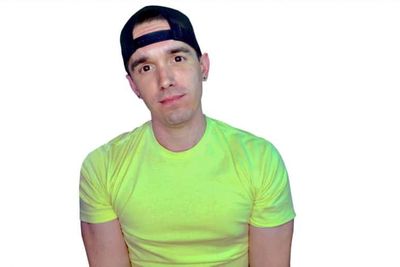On the day that I was told “it’s a positive viral load,” I was given pretty amazing advice from my dad. After I spent 30 minutes explaining the diagnosis, his only words were: “Son, keep living.”
Keep living. That advice contains even more wisdom than I ever knew. It drives to the heart the instruction for people who are given an HIV diagnosis to never give up, to never give in to the pain, and to never choose to stop living. It was my father’s way of telling me not to choose suicide as a reaction.
It’s for good reason, I’ve learned.
The suicide rate among men within the first 12 months of an HIV diagnosis is five times that of the general population. Five times! It’s insane, but it’s true. After the first year, the suicide rate among HIV positive men drops to double that of the general population.
We have this data thanks to a 15-year study of almost 90,000 people diagnosed with HIV in England and Wales, comparing their suicide rates against the general population. Sara Croxford of Public Health England presented the findings to the British HIV Association (BHIVA) conference: “Our findings highlight the need for a reduction in the stigma surrounding HIV, improvements in psychosocial support and routine screening for depression and drug and alcohol misuse, particularly at the time of diagnosis.”
I don’t need a cohort study to provide me with the conclusion that people newly diagnosed with HIV could very well be experiencing depression or other mental health issues that could result in suicide attempts. But the data is there, the stigma is all too real, and It could happen to anyone.
Early after Charlie Sheen received his diagnosis, he admitted to having thoughts about ending his life. In an interview with ABC News'Michael Strahan on Good Morning America, Sheen said he, "Immediately wanted to eat a bullet" the day he learned he was HIV-positive. This is an all-too-familiar sentiment that I’ve encountered personally, both on social media and through private conversations with others in the community.
All of this makes me think: I’m someone living with the virus and I have never considered attempting suicide. Why is that? Don’t I experience similar stigmatization?
Well, maybe not.
On the day that I received my diagnosis, I wanted to (and felt safe enough to) share the news with my family. Literally the same exact day—within hours of getting the news myself—I was sitting down with my family and disclosing my diagnosis. They were and still are my biggest support circle, and I feel a tremendous amount of privilege and luck to have that. I recognize that there are a number of reasons other people living with HIV aren’t able to experience that type of support from their families and friends.
I question how much I would have been able to accomplish and attempt to tackle as an activist without that support, and I wonder whether my thoughts might have moved towards self-harm without my circle of deep support. I sincerely can’t imagine my life any other way; I attribute my strength completely to them. Throughout the past seven years since my diagnosis, they’ve empowered me to talk about HIV every day. They stand beside me when I get fired up about HIV stigma and as I try to change the world via Twitter and Facebook updates.
I’m lucky to have them… but what about others who don’t have that support? How do we put out the right messages to reach them, to tell them that life isn’t over with an HIV diagnosis? That they can still love, be loved, and deserve to keep living… just like my dad told me?
As the cohort study concluded—and as I firmly believe—we must realize that stigma is a real epidemic in our lives and the effects can and will continue to take people’s lives. The jokes about HIV seem a bit less funny when we realize just how life and death it can be for our friends, coworkers, bar buddies or strangers that overhear us.
HIV is a virus, but stigma is the epidemic … and one that already has a cure.
Josh Robbins is an award-winning sexual health advocate, author of the site imstilljosh.com and spokesperson for DatingPositives.com. He was nominated for a GLAAD media award in 2017 and recently won the National Lesbian and Gay Journalist Association’s Excellence Award in the blogging category.
